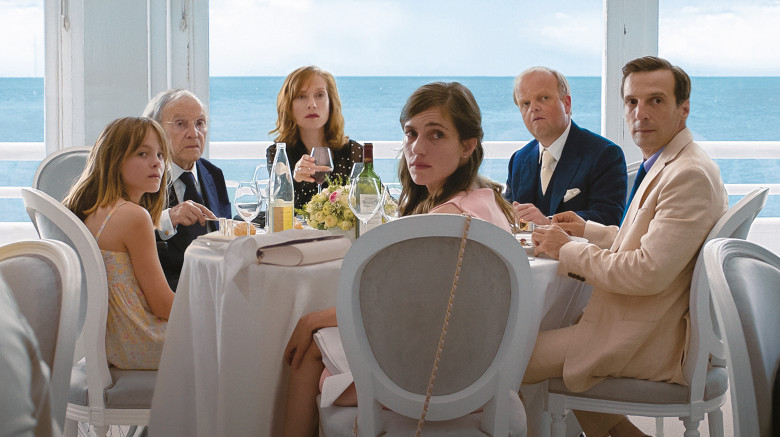With just about two weeks to go before its seaside premiere at the 70th annual Cannes Film Festival, the first image for Michael Haneke’s Happy End – his latest cold dose of cruel reality – has landed as hard as the realization that one day we will all die, and most likely alone. Of course, Haneke returns to Cannes this year a reigning champ, double-fisting Palmes d’Or after his last films to grace the Competition – The White Ribbon and Amour – emerged victorious. The question on many minds going into this year’s festival is whether he’ll win the top prize for a third time and break the all-time record he holds alongside fellow international auteurs Alf Sjöberg, Francis Ford Coppola, Bille August, Emir Kusturica, Shohei Imamura, the Dardennes brothers, and last year’s surprise winner Ken Loach.

Happy End reunites Haneke with two performers who have arguably given career-best performances under his clinician’s gaze: Isabelle Huppert, The Piano Teacher herself, and Amour’s Jean-Louis Trintignant; familiar faces Toby Jones and Mathieu Kassovitz round out the cast alongside fellow first-timers Franz Rogowski and Fantine Harduin. While little is known of the plot’s particulars, we do know that Happy End focuses on a French bourgeois family living comfortably in the port town of Calais as the European refugee crisis washes ashore in their midst, considerably less comfortably. The image above shows our main cast dining al fresco around a white-on-white-on-white table in the fashionably casual spring wear you’d expect from the seaside privileged, a breeze surely blowing somewhere in the air. Meanwhile, you can tell by their gazes of curious dispassion that you’re unmistakably inside a Michael Haneke film. Of all of his frown-triggering films to debut at Cannes in the main Competition – Funny Games (’97), Code Unknown, The Piano Teacher, Caché, The White Ribbon, and Amour – which sends your soul spiraling the deepest and darkest, and why?